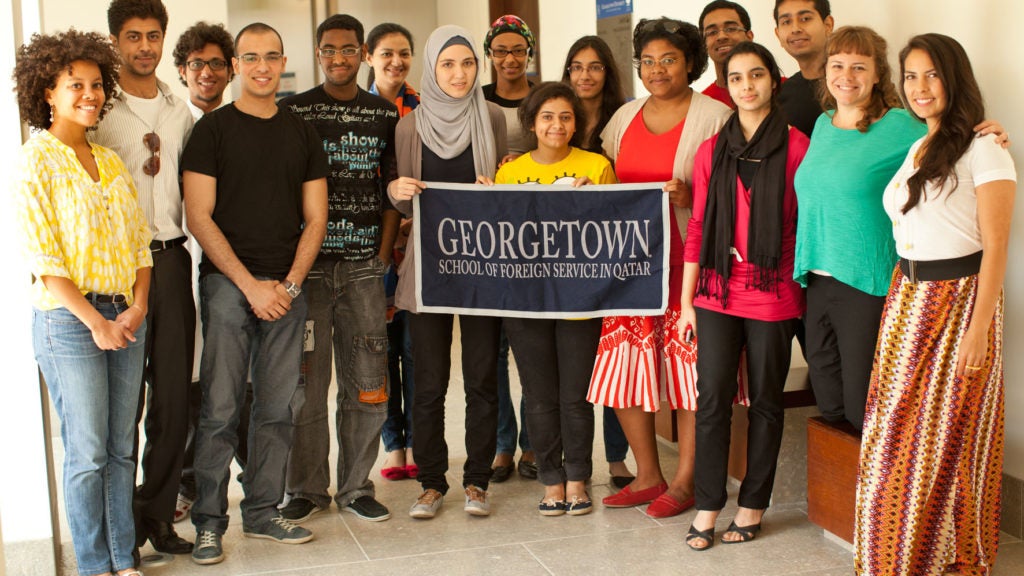Georgetown University Students Head to East Timor to Learn About One of the World’s Newest Countries

A group of students from Georgetown University School of Foreign Service in Qatar (SFS-Q) have left for a potentially life-changing experience in the once conflict-marred region of East Timor on Wednesday, July 11 to gain on-ground insight as part of the University’s Zones of Conflict/Zones of Peace program (ZCZP).
The nine-day trip will take the group, which is comprised of 15 students from SFS-Q and one from Georgetown’s main campus in Washington, D.C., to Dili, the capital city of one of the newest countries in the world, where it will have the unique opportunity to explore truth and reconciliation efforts in the aftermath of the occupation of East Timor, transitional administration by the United Nations, and the country’s independence in 2002.
“The itinerary is pretty engaging and the students will be immersed in a range of activities including meetings, projects, debriefs, and will be led by Associate Dean of Student Development, Brendan Hill, who is also the co-founder of Zones of Conflict/Zones of Peace initiative,” said Erica Haviland, a Student Development Officer at SFS-Q, and the trip organizer. The Georgetown’s ZCZP trips are unique for their particular focus on zones of ethnic, political and religious conflict, with the goal of better understanding both the causes of conflict, and the often difficult process of reconciliation. The program has been running since 2008. “As a lot of students in Qatar also come from conflict-ridden countries, these trips contextualize their own territories to them and help bring a new perspective and level of understanding of these regions to Qatar, which is recognized for spearheading diplomatic drives around the world for lasting peace,” said Haviland.
“I am very excited and am looking forward to learning more about the region, its cultural diversity and mainly the UN intervention in stabilizing the region ever since East Timor achieved independence. It would give me and other students from SFS-Q an opportunity to broaden our outlook on how the UN operates in different scenarios,” said student Sabah Kadri, SFSQ’15.
Past years’ program has focused on ethnic cleansing and refugees in Israel-Palestine, the memorialization of genocide in Germany, Poland, and Rwanda, the challenges of development in post-apartheid South Africa, and the role of borders in contemporary conflicts in Cyprus and Bosnia.
The rigorous itinerary generally lasts for about a week and involves meetings with politicians, journalists, community organizers, and other change-makers in the destination country, as well as visits to points of historical interest.
In order to prepare for this rigorous period of meetings, tours and discussions, SFS-Q students attend weekly classes for two to three months leading up to the trip.
“In some cases, students also do follow up projects in the shape of groundbreaking documentaries, photo essays and research, thus contributing to the evolution of knowledge on the regions but also to the subject of international affairs,” noted Haviland.
After returning to Doha, they analyze and reflect on their experiences by writing entries for the ZCZP blog and presenting their research to the campus and general communities.